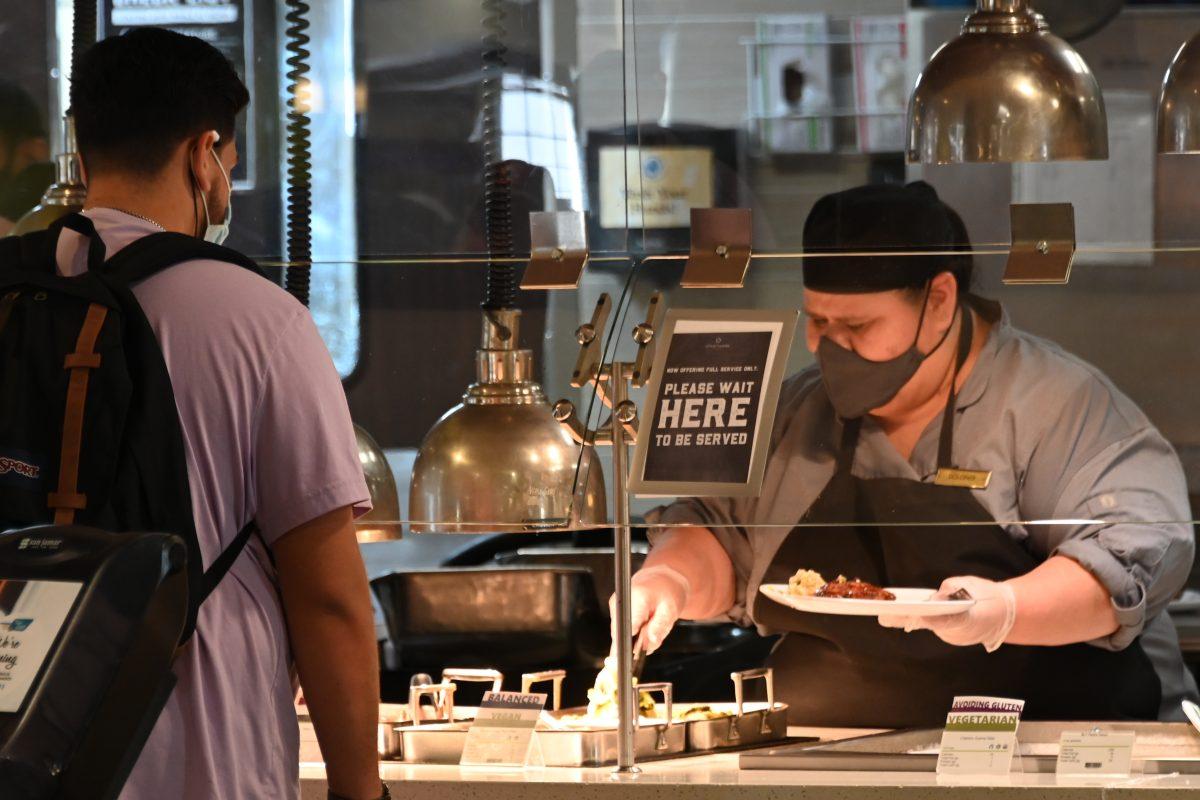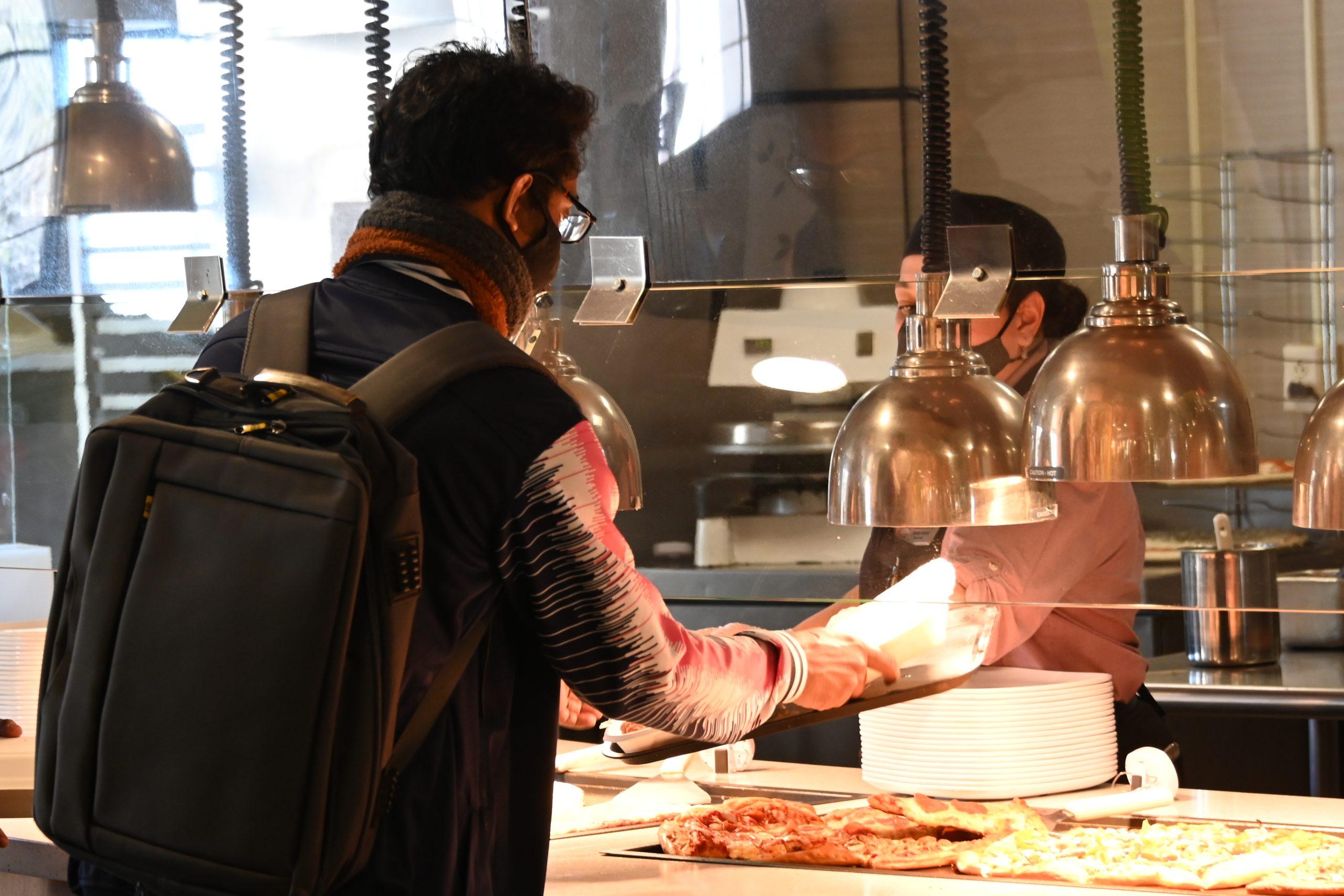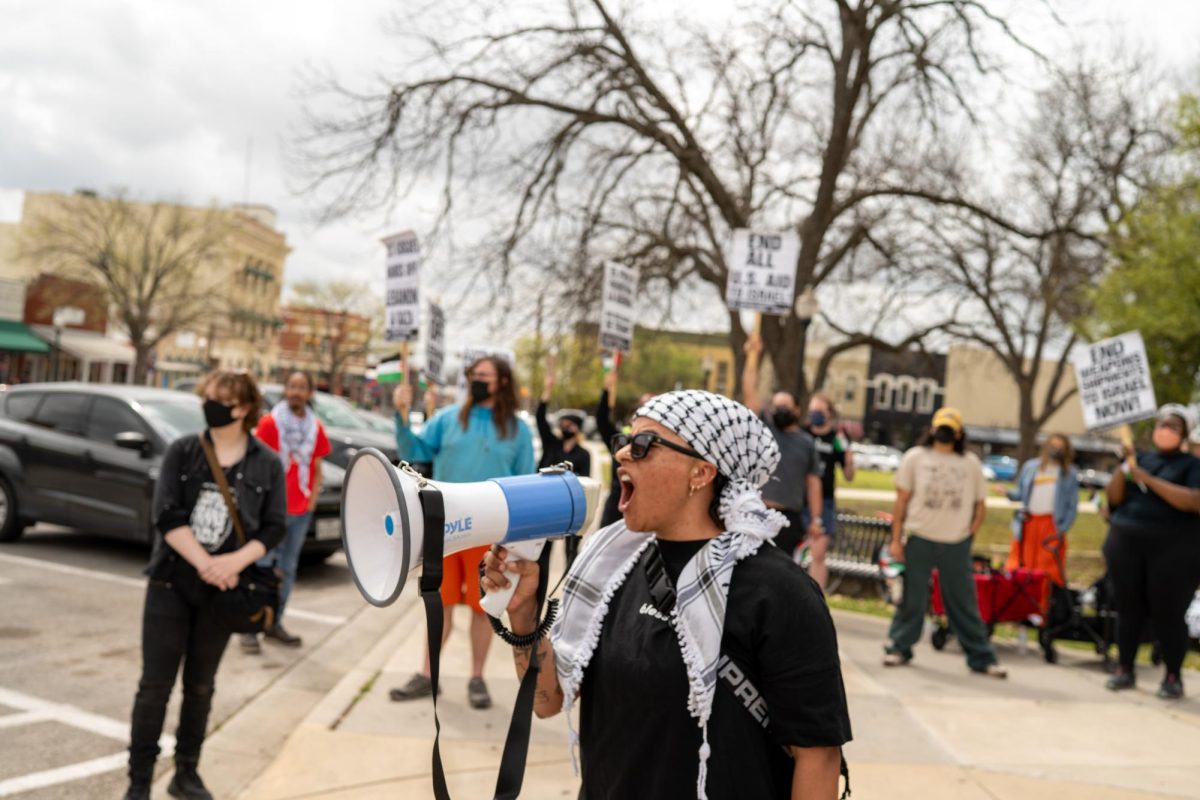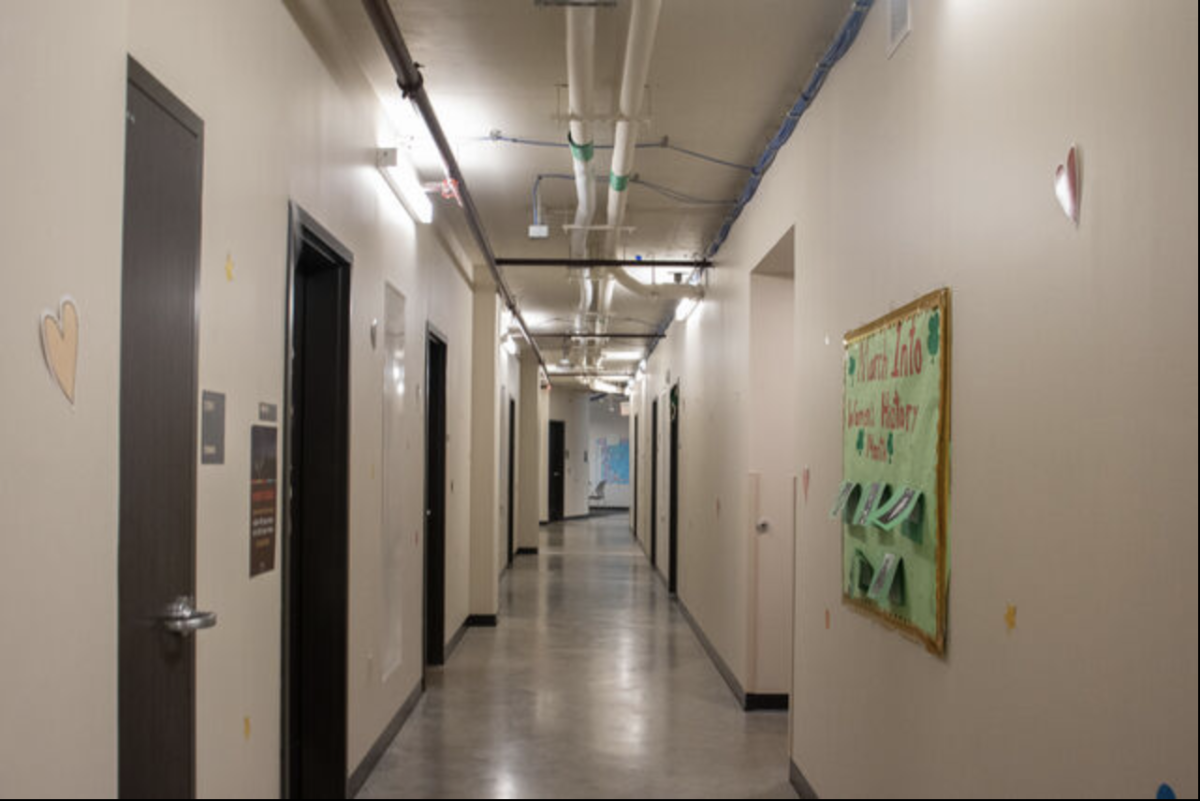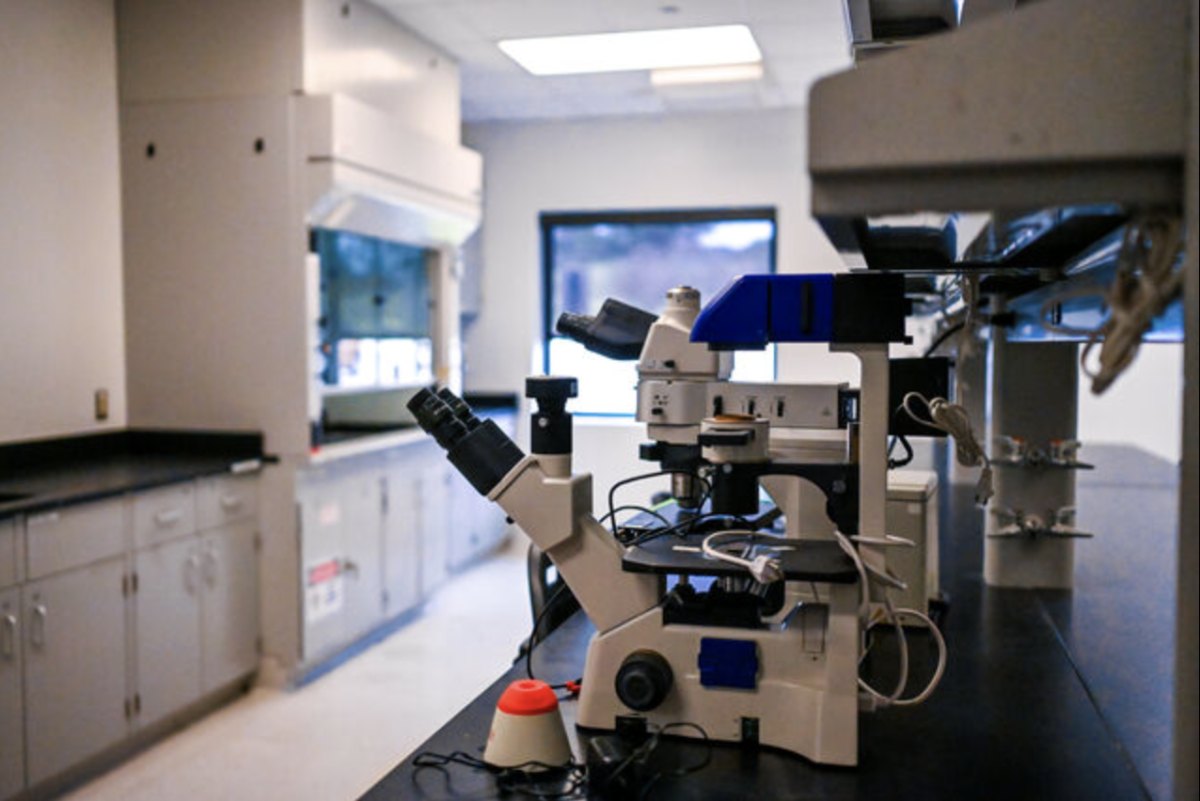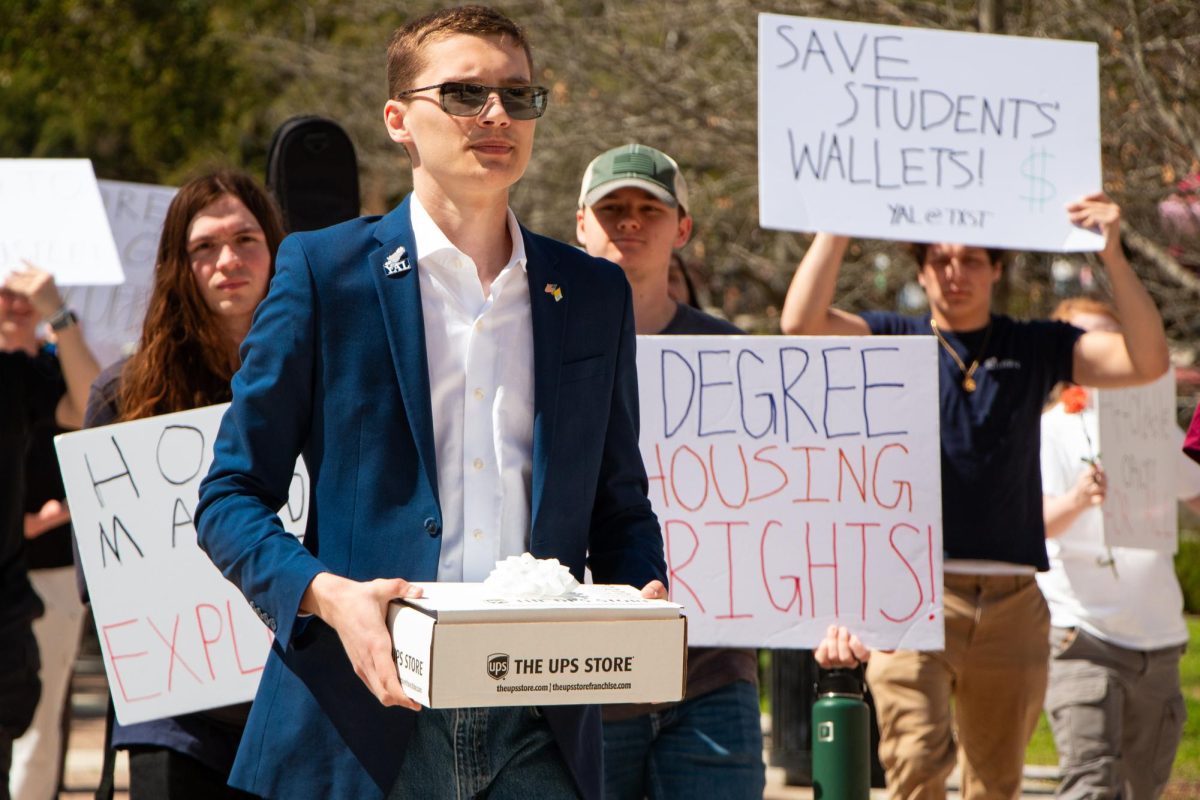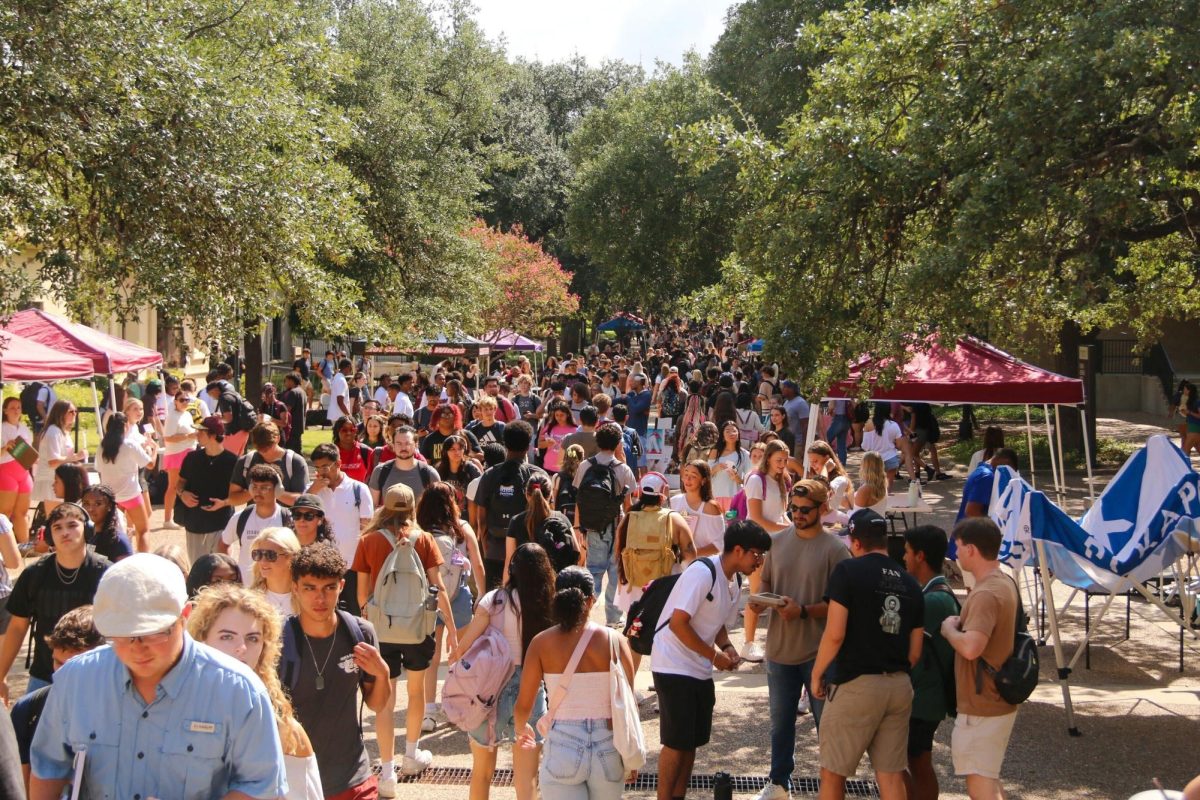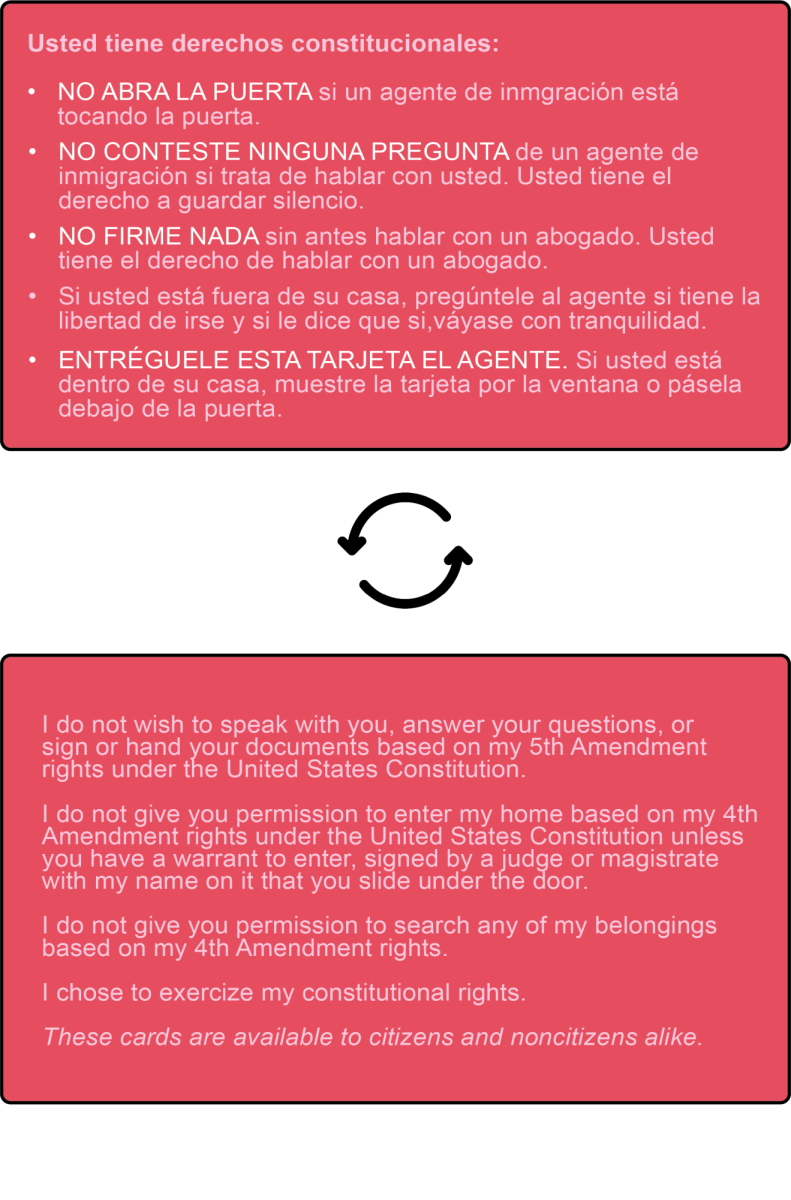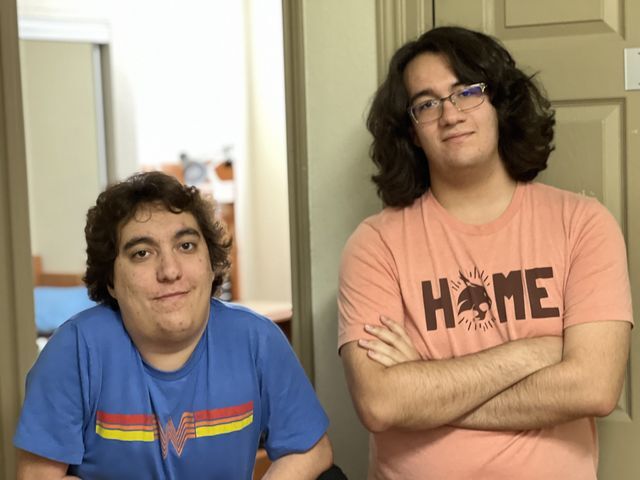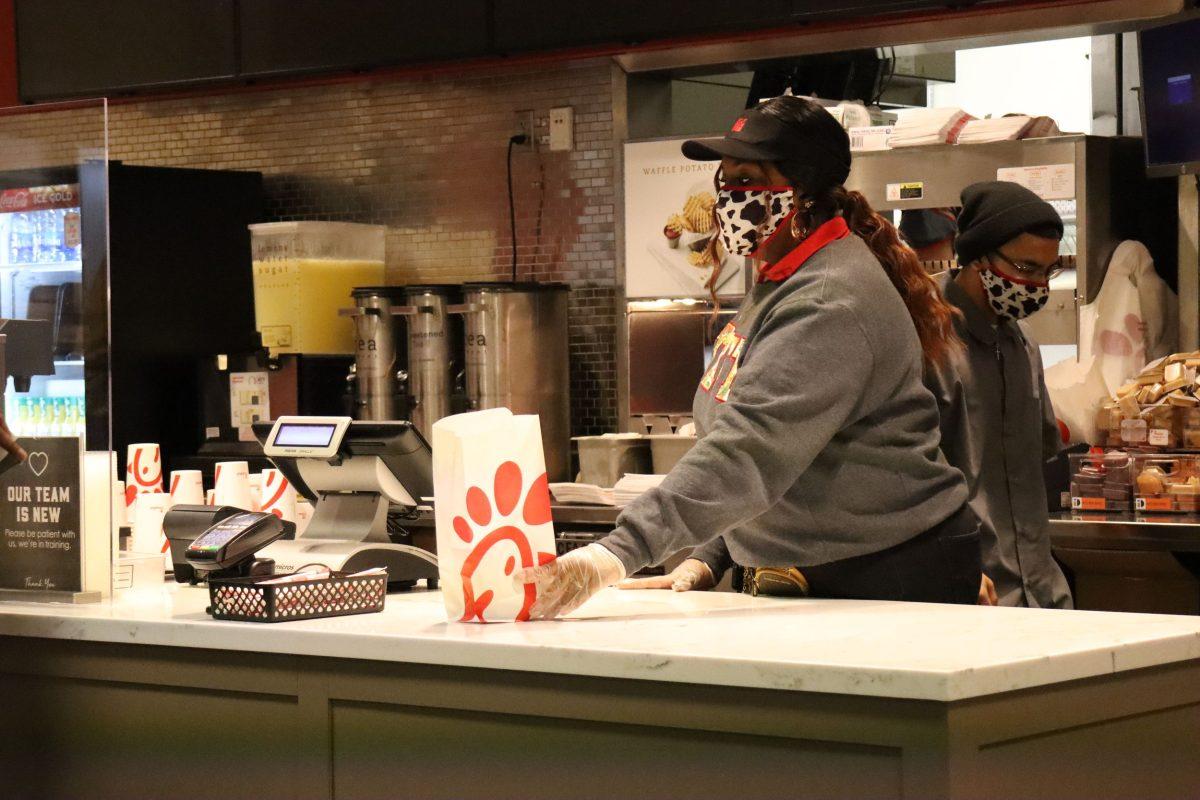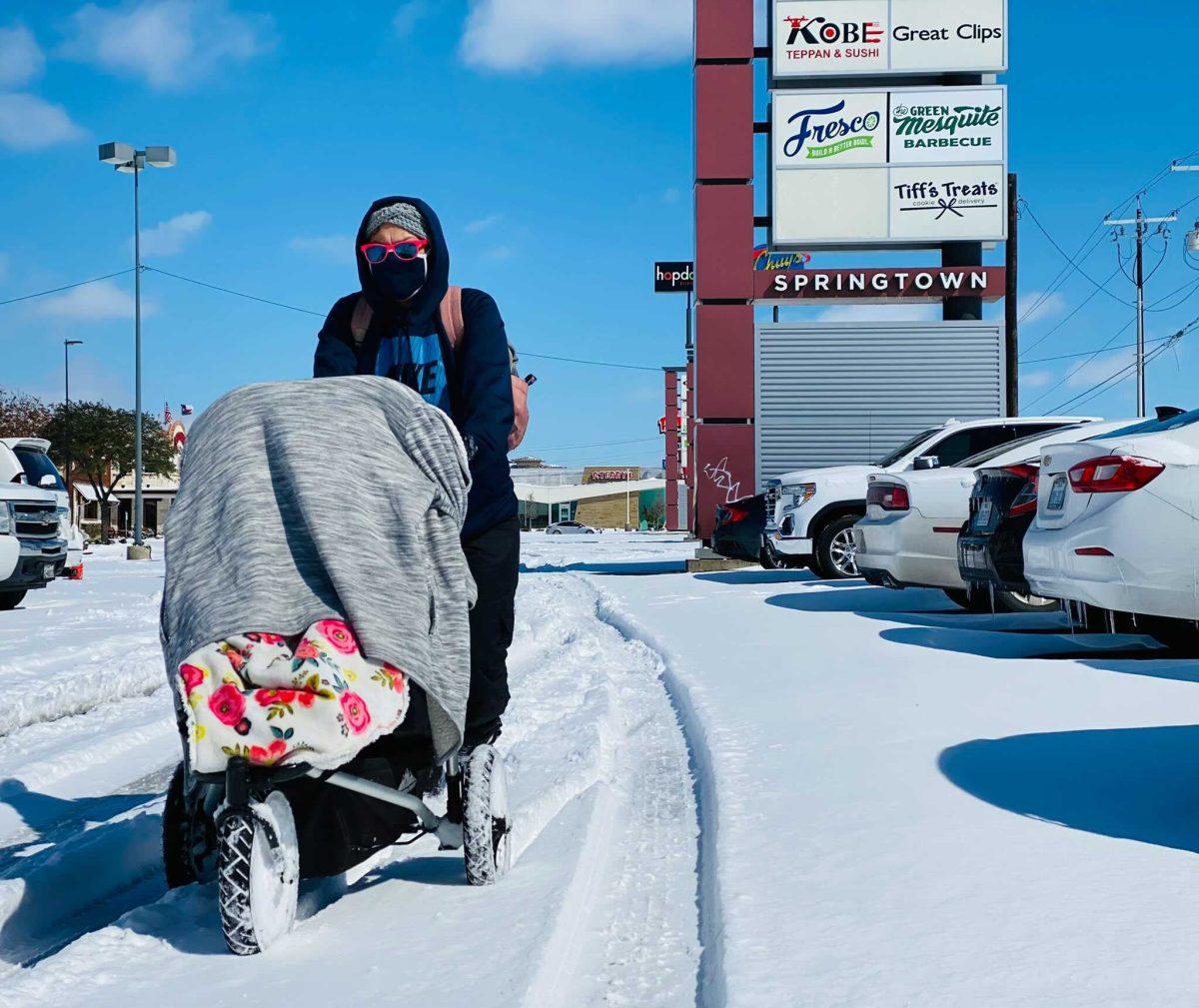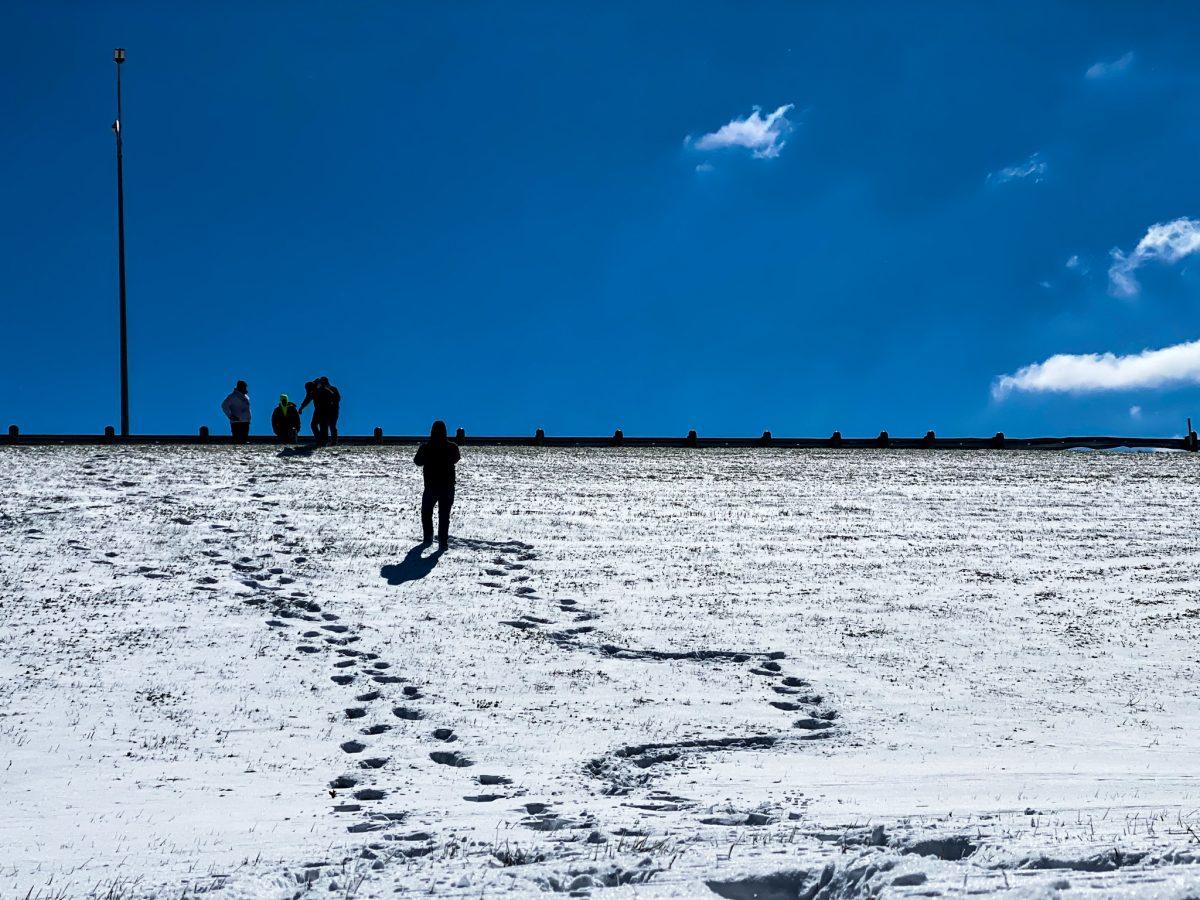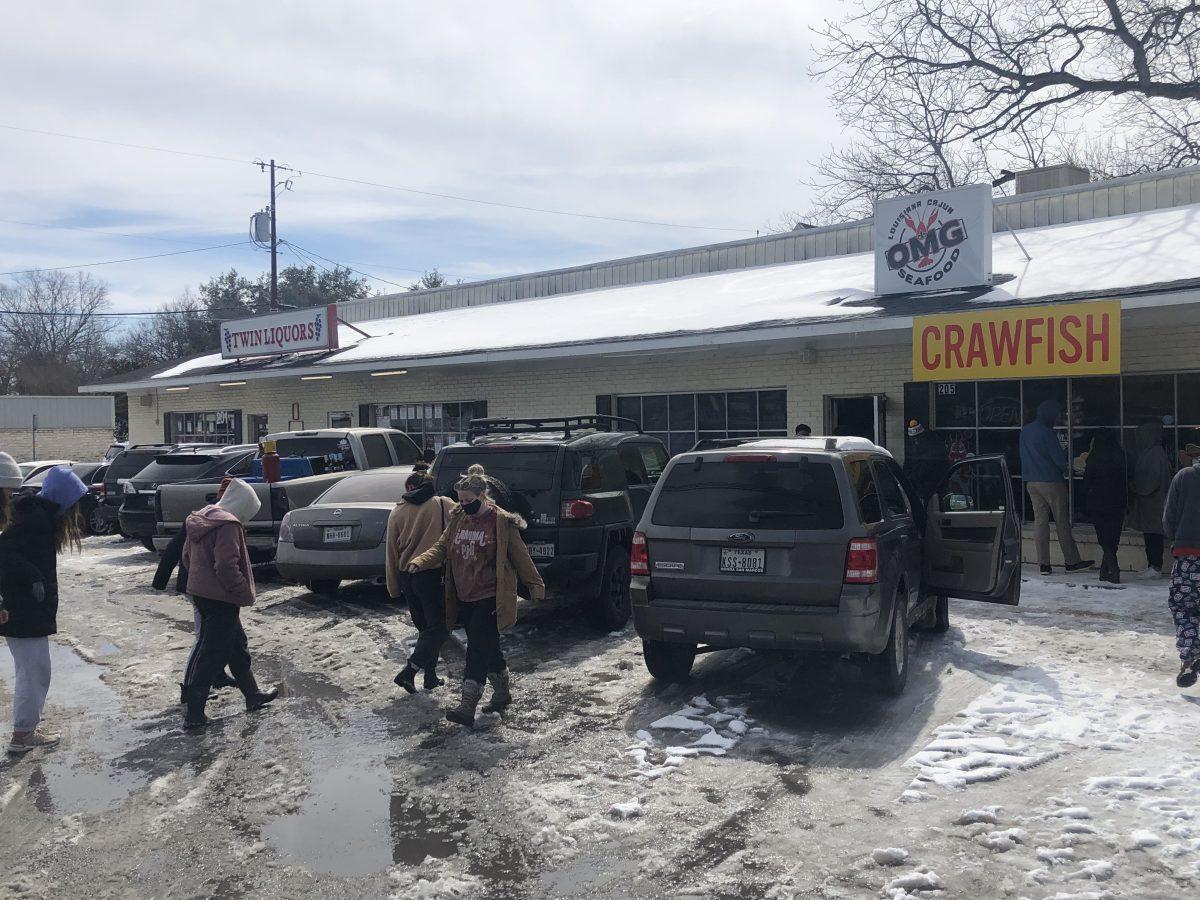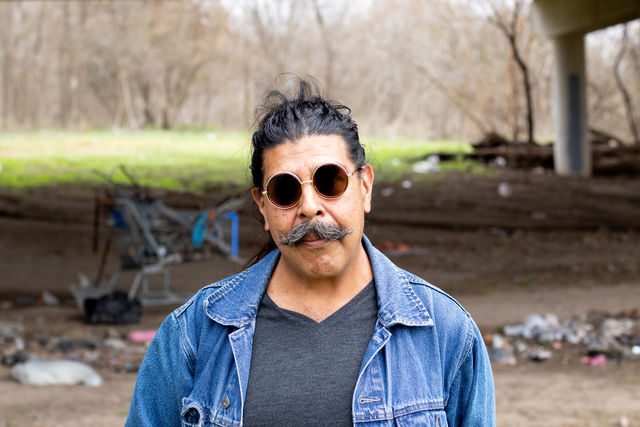After going hours without electricity, water and heat, Texas State dorm residents were left on campus with scarce resources during the week of a historic February winter storm in the state, questioning what would happen next.
“Mentally it was just depressing a little, because you’re just kind of, like, there’s no entertainment, so your mind is just sitting there wondering,” says Katelyn Gorings, a political science freshman, who lives in Blanco Hall.
While the storm, Feb. 14-19, impacted the electricity of some San Marcos residents early on, many residential dorms were able to maintain limited electricity with the help of back-up generators. However, the light and heat did not last long as dorm rooms eventually turned dark, cold and were left without internet.
Gorings says the winter storm put her on edge and was stressful. However, she believes people did what they could to help during it all.
“It’s been inconvenient, to say the least,” Gorings says. “With the power going in and out and then we had the alarm that went off sometime this week, that was kind of nerve-wracking, but with them still having the dining hall opening, that’s still great. But the power outages — they’ve been inconsistent and kind of terrible.”
The cold weather outdoors led to a pipe burst in Lantana Hall, flooding the hall and forcing residents, such as Ellery Campbell, a psychology freshman, to seek shelter elsewhere.
“We had to evacuate to the dorm across the hall, or across the street, which is Butler, I think,” Campbell says. “We had to sit in the lobby of Butler for a long time. We played UNO, we [were] occupying ourselves and then they finally told us like, ‘Hey, like it’s going to take about 72 plus hours to fix this pipe burst.’”
Ayanna Wilson, a music studies freshman, stays on the first floor of Lantana and says the dorm’s resident assistants (RA) took initiative to make the situation less anxious.
“They were just trying their best,” Wilson says. “I applaud them so much because they kept their cool during the whole thing. I was dying and they were like, ‘Here’s what we’re gonna do.’ I didn’t check the group chat when I first got up because I was confused…but in the group chat my RA was like, ‘Unplug everything; get everything off the floor in case it gets to your room; maybe put towels under the door.'”
According to the university, students impacted by the dorm flooding could temporarily stay at Sterry Hall or find an alternative location on their own. Campbell stayed with a friend in Angelina Hall, and Wilson opted to stay at Sterry Hall until she was given the ‘okay’ to move back into her dorm room.
“When we were in Sterry there was no heat; there was no water. There was air conditioning actually when the power was on that we couldn’t turn off,” Wilson says. “So, we stayed there for a few days, and a bunch of people left to go somewhere else because they were freezing.”
Wilson eventually left the hall to find better housing elsewhere. However, due to hotel room shortages in San Marcos, she booked a room in San Antonio instead.
Jessica Ruckstuhl, a biology freshman, lives in building three of Bobcat Village and had to evacuate after an alarm went off, leaving her and other residents in the cold for hours.
“We evacuated into the Mill Street parking lot, and we weren’t really told what was happening,” Ruckstuhl says. “It was like 19 degrees, so super cold, and like we weren’t allowed to get in our cars.”
After being outside for nearly 45 minutes, Ruckstuhl says she and other residents eventually piled into a resident’s car to keep warm. Once realizing help was not coming, Ruckstuhl says she called the San Marcos non-emergency service line herself, only to discover they had not been informed of the situation prior to her call.
“About five minutes after that happened the police came in and they cleared the building,” Ruckstuhl says. “We still couldn’t come back in until a maintenance man cleared it. It took about an hour for the maintenance man to get there, and we were still just waiting.”
Ruckstuhl says she and other residents were outside for almost four hours and were told they could temporarily stay in Bobcat Village’s COVID-19 quarantine building, which she did not feel comfortable with, or find somewhere else to go.
“A few people ended up staying with friends and some people went to a homeless shelter for the night,” Ruckstuhl says. “I was lucky enough to know somebody there who was able to take me to their apartment and let me spend the night.”
Weeks after the winter storm, she says she still does not know why her building had to evacuate and only knows what she was told — it was unsafe to stay.
“The next morning, all the buildings, we had no cell service, still no power, so all our phones were dying. I ended up calling the RA on-call and asked him to speak with a resident director, but the resident directors had stopped answering their phone calls from their RAs, so there was no superior to talk to,” Ruckstuhl says. “It’s just basically a bunch of students that are trying to figure out what to do. None of the university services were open, obviously, since it closed down, so [the University Police Department] wasn’t answering, no resident directors were answering. So, we were just, really, like in the dark, and had like no idea what to do.”
Herb Jones, associate director of Residential Life and Education, says his staff at Residential Life and Housing faced complications with keeping communication with residents and workers at Bobcat Village during the storm but has made efforts since to figure out why they happened.
“Part of the process that we are going through now is we’re going through our after-action review,” Jones says. “We’re collecting information; myself and [Vice President for Student Affairs] Dr. [Cynthia] Hernandez have met with a group of students at Bobcat Village, so we’re learning a lot of different things and why certain things did happen.
Jones says there were aspects of the winter storm situation he wishes he and his staff handled differently.
“When you look back, you know, whenever any situation happens, you know whether you’re taking a road trip, you think, ‘Oh maybe I should’ve taken this road trip way to avoid this traffic.’ We’re gonna look back and say, ‘Hey, there are some things we could’ve done differently, some things we need to tweak, some things we need to follow up on,’ and that’s part of our direction,” Jones says.
“Also, I’ll acknowledge that every situation we may come to in the future may be different. We may not have another winter storm but may have another blackout that may be contributed to heat. So, people not having air conditioning, how do we respond to that? So, I think we can only work on a framework and then we gotta be able to adjust with that framework just based off what situation is presented to us, in terms of my teams.”
Donyae Clark, a nursing freshman, says she knew there was severe weather but, because the university did not announce the first cancellation of classes until Feb. 14, she attempted to drive back to campus.
“The university kind of took a long time to decide if they were gonna cancel classes or not,” Clark says. “I actually ended up driving to campus in the bad weather and ended up crashing my car and getting in an accident trying to get here in time for classes because I didn’t know if they were going to cancel class or not.”
Clark also lives at Bobcat Village, which is equipped with kitchen appliances, but says she was not prepared for the storm and had no cookable food.
“I was actually planning on grocery shopping when I got down here, but thankfully I did have a few non-perishables,” Clark says. “The three days straight without power, I really wasn’t prepared to eat anything. And most of the stuff I had, I had to cook, so I was just eating chips and snacks.”
During the storm, Clark says neighbors would share whatever they had or go on runs to wherever was open to help one another and ensure they all had food.
“I feel like we should’ve been a priority [to the university] as well because [students on campus] have dining halls and pre-packed lunches, stuff like that,” Clark says. “Our only source of food was to make it and if our power is out, we couldn’t eat.”
The university opened its dining halls to all students who presented a valid student ID, regardless if they had a meal plan, until Feb. 22. Only Harris and Commons dining halls were open for to-go service due to power outages. While students were provided meals, some, like Danila Gonzalez, a marketing freshman, say meals were at times cold, small portioned and the lines to get food moved slowly.
“Having to wait for food in the dining hall when it’s snowing outside. I think I waited at one point almost 20 minutes outside and in a line of kids, and they finally just let us in the building,” Gonzalez says. “When they let us in the building, none of it was socially distant so, it’s almost, like, you know, unsafe. So, I mean, there’s a lot of trouble with that.”
Senior Media Relations Manager Jayme Blaschke says the university’s focus was to keep the dining halls open and stocked as best as it could to ensure on-campus students had access to food and drinks.
“The university intended to provide hot food, however, at times that was not possible as we lost power intermittently,” Blaschke says. “When that happened, we prepared sandwiches in accordance with food safety measures, so we always had something to offer.”
Mason Cook, a psychology freshman, lives in Blanco Hall and experienced the brunt of the storm. Cook was without water, electricity and phone service and says the experience was the only time he “actually wanted to do schoolwork” but could not. He says while the university was unable to predict the damage of the storm, it provided on-campus students with subpar assistance.
“They tried a lot,” Cook says. “They brought buses out to heat people up and stuff, but [it] felt like a real inconvenience for us because we just couldn’t do anything. We were all trying to get together and then we were told to stay in our rooms and stuff which just didn’t feel like it was gonna happen because it was dark, cold [and there was] nothing.”
In a statement to The University Star, Vice President for Finance and Support Services Eric Algoe says the university has taken into account a need for improvement, and he is overall proud of its efforts.
“We will endeavor to do better should an event like this happen in the future, but I’m grateful for the staff who worked so hard and ignored their own life issues [during the winter storm] to ensure our students’ needs were met,” Algoe says.
Ricardo Delgado contributed to this story.
Categories:
On-campus residents reflect on power outages, food scarcity during winter storm
Timia Cobb, Assistant News Editor
March 8, 2021
Line server Dolores Rios serves a plate of breakfast to Texas State German language Freshman Osvaldo Barrientos, Monday, Feb. 22, 2021, at Commons Dining Hall.
0
Donate to The University Star
Your donation will support the student journalists of Texas State University. Your contribution will allow us to purchase equipment and cover our annual website hosting costs.
More to Discover



